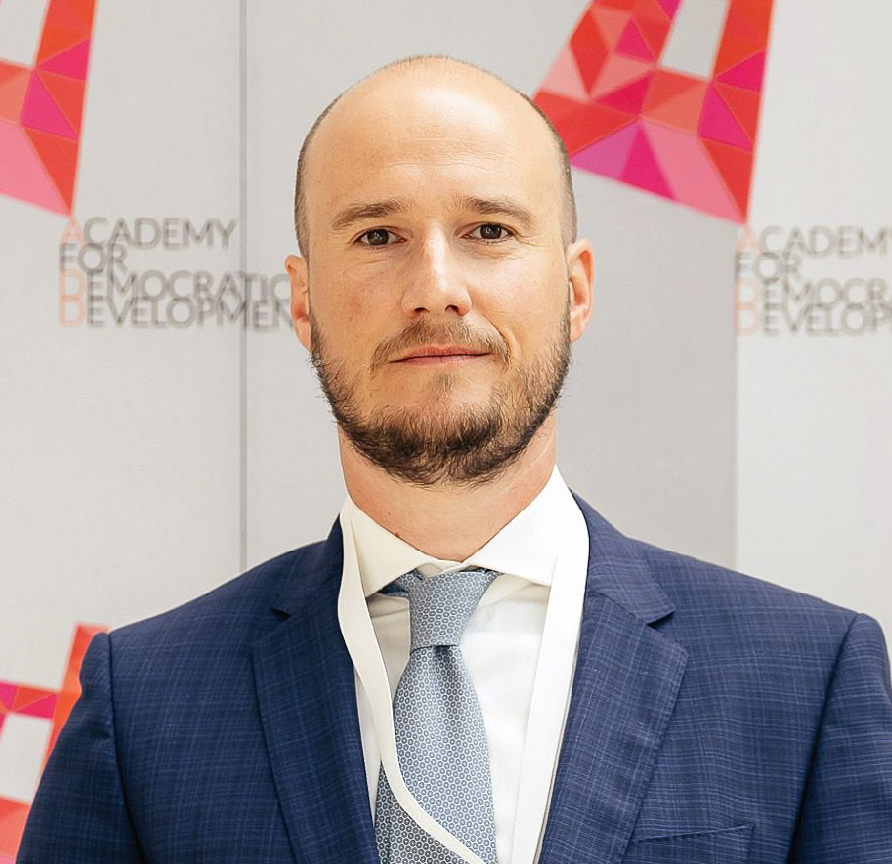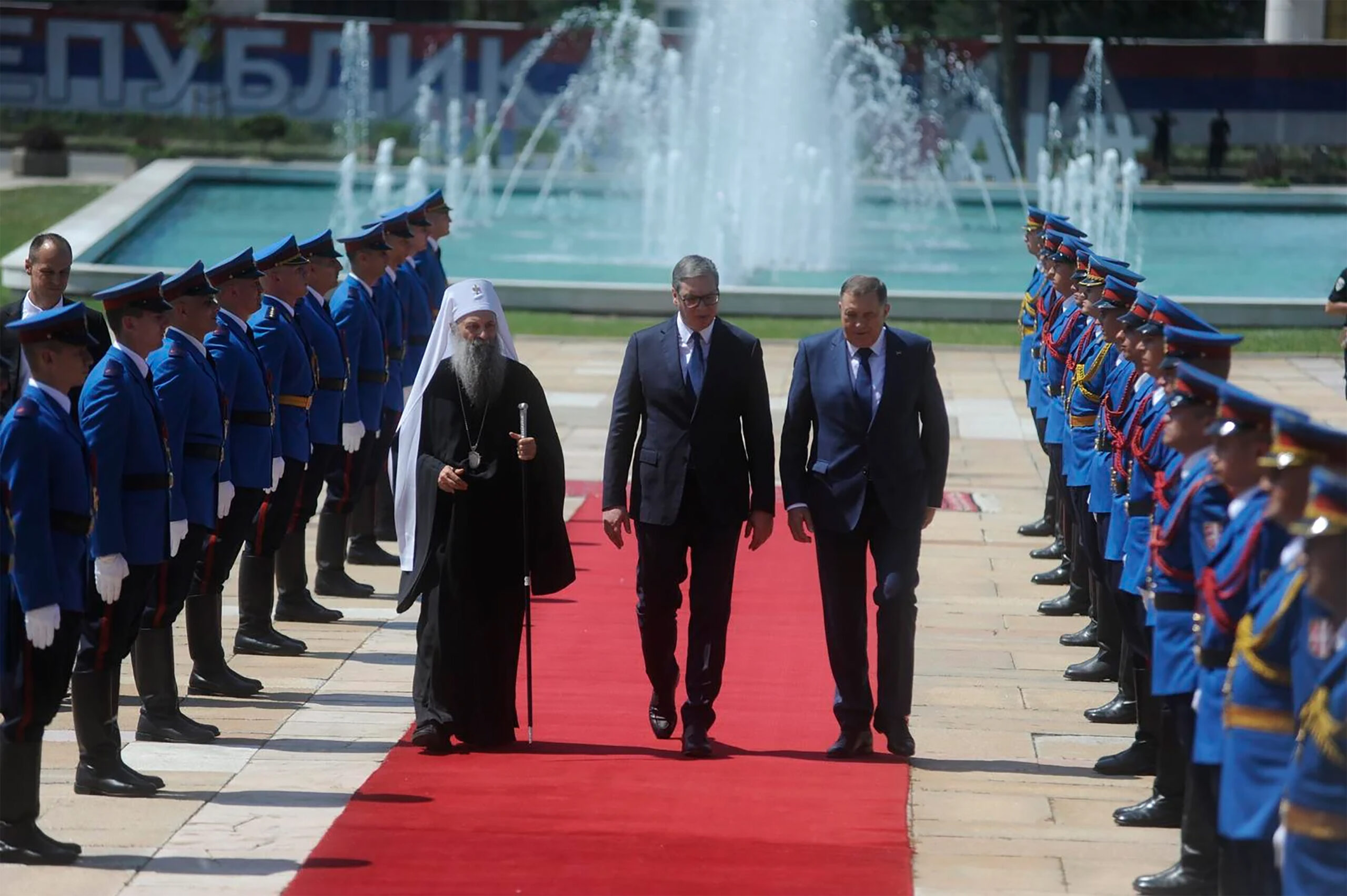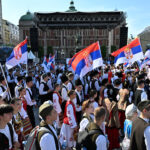The war has begun. Europe is at war. Anyone living on the old continent should be aware that the fact that Avdiivka is not within the borders of the European Union does not mean it is not a European city, and the fire from Europe’s backyard can easily spread to the steps of the European Union. Europe is under attack. Russia is the aggressor. Ukraine is defending the comfortable and safe lives of European citizens, their values, culture, and economy. Why is it especially important to emphasize this? The European Union and the United Kingdom avoid presenting the situation as dangerous to their citizens, which it actually is. The narrative that mentions the war as something happening far from our daily lives only encourages the aggressor, Putin’s dictatorial regime, to continue ruthlessly crushing Ukrainian cities, killing innocent people, and destroying the future of the largest country in Europe by territory.
Moreover, it is important because of the insufficient attention that European public opinion gives to potential hotspots in Georgia, Moldova, and the Western Balkans. In the context of the fire spreading through Europe’s backyard, these three potential conflict points are also talked about as distant peripheries of Europe, rather than new threats to kneel the joint European defense in the war with Russia.
In this text, I will pay special attention to the Western Balkans because what Georgia has – hundreds of thousands of people on the streets opposing pro-Russian policy, holding the flag of the European Union as a symbol of values, more steadfastly than any EU member state today – the Western Balkans does not have. What Moldova has – a determined political elite ready to stand against Russian aggressive imperialist policy together with President Maia Sandu – the Western Balkans does not have, except for exceptions in Kosovo.
Therefore, the Western Balkans shows no signs of resistance on the streets, and more importantly, no signs of resistance from the political top of the most powerful and largest state in the Western Balkans, Serbia. On the contrary. Serbia has a population equivalent to the rest of the Western Balkans combined. It has a military industry and army equivalent to the rest of the Western Balkans combined. And the most disastrous for peace in the region, it has a pro-Russian political elite in both the government and the opposition, which, together with other elites such as intellectual and financial, has never been lustrated or punished for the wars and crimes that Serbia and its leadership committed in Slovenia, Croatia, Bosnia and Herzegovina, and Kosovo. Serbia also has a rich and well-organized Serbian Orthodox Church that openly does not recognize borders in the region and denies the identities of almost all of its neighbors.
The essence of relations in the Western Balkans region boils down to the relationship that Serbian imperialism or Greater Serbian nationalism has towards the neighboring states of Serbia: Bosnia and Herzegovina, Montenegro, and Kosovo. These are the states that represent the greatest prey for Serbian nationalism, which is why it tries to make these states dysfunctional from within, to prevent their efforts towards EU or NATO membership. Serbian nationalism is an ideology. This ideology is expansive, anti-Western, anti-democratic, and historically always pro-Russian.
The ideology of Serbian nationalism and its imperial tendency for other territories and assimilation of other peoples was much more intense in the 1990s compared to the then Russian Greater state nationalism. The difference is that during the wars of the 1990s, Serbia did not have today’s Putin’s key argument, which is the atomic bomb. Therefore, Russian policy today is at the point where Serbian policy was already in the 1990s. During the breakup of the Soviet Union, although Russians lived in surrounding states that became independent, there was no invasion and redrawing of communist borders unlike the former Yugoslavia, which was destroyed by Serbian leadership in the fight for Greater Serbia. Only the recent non-recognition of the Ukrainian identity by Putin’s regime is actually a copy of Serbia’s policy from the late 1980s to today. Serbian nationalism considers all South Slavic peoples to be Serbs. For them, Montenegrins are Serbs, as well as Bosniaks, Macedonians, and a portion of Croats. As far as sovereignty is concerned, since the Dayton Agreement in 1995, when the war in Bosnia ended, the Serbian regime has been using the doctrine of limited sovereignty. Such a doctrine accepted by the Serbian government considers that states cannot have sovereignty, only the nations within those states. Therefore, in Bosnia and Herzegovina, and other places in the region where Serbs live, they consider Serbs to be the bearers of sovereignty and that all should be under one roof and political umbrella. The so-called “Serbian world” is the same as the “Russian world”, except that it is older than the Russian world and has existed from the 1980s to today as an official state policy.
Thus, Serbia was in imperialistic, aggressive, anti-Western nationalist politics long before Russia, which is praised by so-called intellectuals of Putin’s Russia today, such as Dugin. Long before Chechnya and Georgia, there was aggression against Croatia, Bosnia and Herzegovina, and Kosovo.
In this sense, Europe does not pay enough attention to the essential problems that are preparing to explode in the Western Balkans into some kind of limited conflict like the terrorist act in Banjska in northern Kosovo last year. Russia has had open doors in Serbia for decades for any attempt at destructive policies and undermining peace in Europe. Perhaps the picture of the Deputy Prime Minister of Serbia, Aleksandar Vulin, from a few days ago in Moscow, bowing at the monument to Joseph Vissarionovich Stalin, speaks best about how ready that system in Serbia is to continue the policies of the 1990s today. This is in the interest of Putin’s criminal policy, which, just like that in Serbia, is waiting for new favorable international circumstances to achieve its war and imperialistic goals.
Serbia is waiting for the presidential elections in America in the hope that Trump will win, that Russia will win the war in Ukraine, and that China will become the number one economic power in the world. These favorable moments for the two criminal regimes will be enough for Russia to bring Europe to its knees, and for Serbia to conquer a good part of the Western Balkans by force or “soft power”.
The Plan for the Serbian World in the Next Two Decades
Serbia will try to stop Montenegro on its European path because it will never allow the “Serbian national corpus” to be fragmented in the region with new EU borders. The plan for Montenegro is to, through pro-Russian parties that make up the government in Montenegro and the Serbian Orthodox Church in Montenegro, which is an extremely strong political factor, change the citizenship law and enable Serbian citizens to acquire Montenegrin citizenship. In this way, Serbian citizens would decide all elections in Montenegro, and it would no longer have any mechanism to decide its future. This would drastically change the picture in Montenegro and it would effectively be made into a “Serbian state.” Over time, from within, through a creeping coup, Serbia would annex Montenegro, which would lead to the foreign policy of Russia reaching the Adriatic Sea. All this would represent a triumph and revenge for Serbia and Russia for the failed coup attempt in Montenegro in 2016, which tried to prevent Montenegro from becoming a NATO member.
In North Macedonia, the pro-Russian VMRO returned to power with the help of Serbia after the failed coup in 2017 in the Macedonian parliament, organized by Serbia and Russia.
In Bosnia and Herzegovina, the situation is very clear. After a series of meetings with Vladimir Putin, Milorad Dodik, the president of the entity Republika Srpska, announced secession and disassociation from Bosnia and Herzegovina. After the war in the 1990s and the genocide in Srebrenica in 1995, the Serbian leadership fully supports Republika Srpska to do everything to join Serbia.
Serbia as Russia’s Aircraft Carrier in the Western Balkans
It is very naive of the American administration to believe that Vučić is a partner they can rely on. The arguments most often mentioned for this are that Vučić is a guarantor of the interstate agreement and the normalization of relations between Serbia and Kosovo. Also, the fact that Serbia, despite not imposing sanctions on Russia, exports more weapons to Ukraine than the entire Western Balkans combined, and even more than some EU members. First, of course, Serbia tells the West what the West wants to hear. Vučić boasts to the American administration that Serbia sends more ammunition to Ukraine than the entire region combined, but that is because the region does not have a military industry unlike Serbia. Some EU countries do not have a military industry either. But of course, Russia knows all about it because Serbia regularly reports to it.
It is a delusion of the West to tolerate Vučić’s sitting on two chairs. Serbia is the only country that has not imposed sanctions on Russia and the only country that has not aligned its foreign policy with the European Union while receiving significant financial expenditures from the EU. Thus, the EU exclusively finances the regime in Serbia and the system from the 1990s, as well as the pro-Russian foreign policy. Serbia is today a Russian aircraft carrier in the Western Balkans that threatens to sink the entire region.
The articles published in the “Opinions” column reflect the personal opinion of the author and may not coincide with the position of the Center
Balša Božović
Chair of the executive committee of the Regional Academy for Democratic Development (Serbia).




